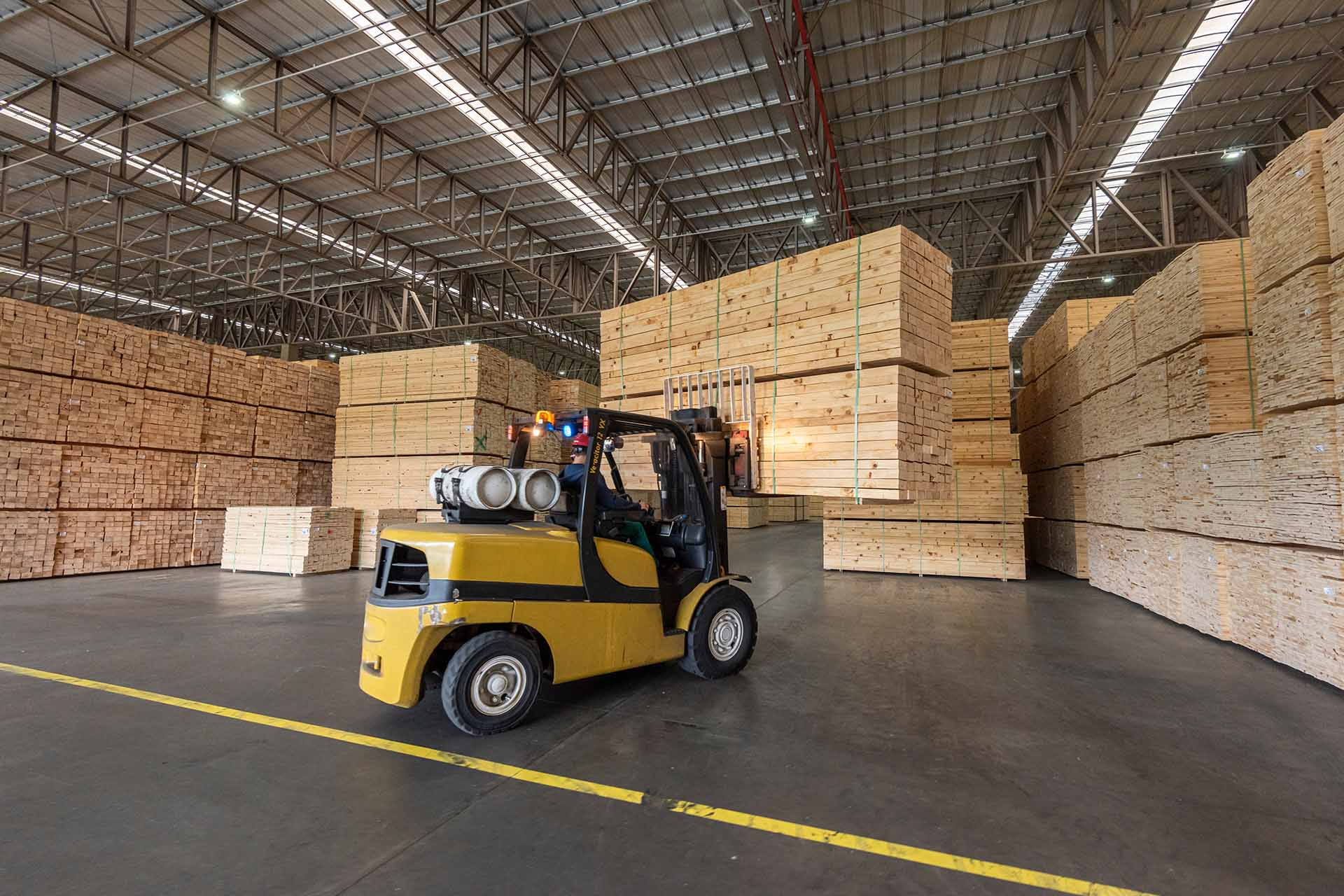
The world needs sustainable actions. Digitalization and Pinja’s solutions drive sustainability in clients’ businesses in a practical way: by reducing energy use, raw material demand, and waste, minimizing unnecessary transport, improving occupational and personal safety, and helping to meet carbon footprint and sustainability reporting requirements. Digitalization also contributes to the other 17 UN Sustainable Development Goals.
Below, Pinjans give examples from the manufacturing, forestry, sawmilling, and energy industries, as well as the circular economy and knowledge management sectors on how we help clients in different industries promote sustainability. In the second part of the blog series, How digitalization is driving sustainability in practice, part 2/2 – green building to reduce emissions and promote well-being, we discuss the development of sustainability in e.g. the construction industry, trade and services, and wellness and health technologies.
We help the manufacturing industry reduce material use and waste
Digitalization fights the traditions, value chain, and competitiveness factors of the manufacturing industry, bringing with it many new opportunities. Pinja acts as a guide for its clients in production and maintenance digitalization projects by providing a complete ecosystem for the entire production capacity and product life cycle.
- Sustainability plays a significant role in the manufacturing value chain, from sourcing to production, warehousing, and logistics to customer deliveries. For example, we helped our client Olvi improve the monitoring of material use and raw material waste and consequently reduce both. We have also helped to monitor the use of utilities such as electricity, water, and steam and link them to production and product information. This has enabled us to work together to optimize the manufacturing chain in many different ways, says Sami Kajan, Pinja’s Vice President, Operational Excellence Solutions.
Among others, Pinja’s solutions help Metsä Fibre, Atria and Snellman use natural materials, optimize functions and minimize waste. In the case of natural materials, an important element is the anticipation of sourcing – the availability of raw materials is not as predictable as in the case of artificial materials.
Pinja’s software solutions for the manufacturing industry, such as the APS system iPES by Pinja and production data collection and control system Gema by Pinja, also contribute in many ways to the Sustainable Development Goals published by the United Nations. Our solutions help client companies make new, innovative investments, plan and simulate production solutions before implementation, improve production planning and material use, and bring inventory balances to optimal levels.
Novi by Pinja, the maintenance system designed for industrial needs, in turn, enables the digitalization of maintenance, improving efficiency and extending the life cycle of production equipment. In addition, Pinja’s solutions support effective training and orientation of staff, thus contributing to improved safety at work.
A sustainable forestry and sawmilling industry is streamlined and traceable
- At the core of sustainable forest management and responsible sawmilling is the planned and sustainable use of natural resources. Long-term planning and effective information management can ensure that these objectives are met at all stages of the work and throughout the value chain, from harvesting to transport, processing, and customer deliveries, says Veli-Pekka Hämäläinen, who leads the client relationship management team at Pinja’s Forest unit.
Among other things, Pinja helps its clients improve wood transport capacity utilization and seek optimal transport while reducing carbon dioxide emissions from road transport. In sorting and storage, we help ensure accurate classification and clear storage. The Forklift module of the Timber by Pinja app enables clients to streamline their workflow while reducing unnecessary forklift driving, thereby also improving fuel efficiency.

In our sawmilling and processing phase, we help our clients maximize wood raw material use and production line capacity with a range of production planning and optimization tools. This reduces the need for raw materials. In the various stages of the production and storage of processed wood products, the quantities of packages lifted and moved are monitored, in order to minimize transport distances and the machine time required for transfers. The packaging of finished products in trucks or trains is done with the smallest possible number of transfers, thus reducing the ecological footprint.
- Electronic work instructions that promote occupational safety, information management that improves the traceability of wood, and convenient reporting to the authorities also play an important role in the sector’s sustainability, Hämäläinen says.
For our client JPJ-Wood, for example, sustainability is a key part of their business in many different ways, and the Forest by Pinja system supports the entire value chain from harvesting to transport, sawmilling, and regulatory reporting. The company operates in accordance with the law, forest certification requirements, and chain of custody verification criteria, as proved by its PEFC certification. 100% of the wood raw material used by JPJ-Wood is Finnish, and the company operates according to the principles of sustainable development related to forest regeneration and biodiversity conservation.
A sustainability system ensures traceability of materials in the energy and circular economy
Pinja supports its clients in moving towards energy optimization, full traceability of materials, and careful attention to emission reductions. We also help them meet regulatory reporting requirements. The SaaS-based Once by Pinja solution helps manage comprehensively the ordering and supply chains of energy production plants and companies operating in the circular economy, among others. Effective monitoring and multi-level reporting support decision-making in the management of activities, as well as at a daily, operational level.
- All our energy sector clients can benefit from the sustainability system developed by Pinja specifically for fuels – each at a level of detail they deem appropriate. Among other things, the system helps ensure that the origin and certification requirements for certain materials, in particular fuels, are met in the supply chain. In addition, the traceability of materials from source to end use can be ensured, says Marko Kiippa, Business Director of Pinja’s Bioenergy and Circular Economy unit.
The effectiveness of a streamlined and documented supply chain is partly underlined by the fact that the value chain typically involves many different parties, from material producers to vendors and suppliers, transporters, downstream processors, and end-users. The SaaS solution helps the different parties in the supply chain to keep track of the information generated at different stages, such as the origin, quantity, quality, and price of the material. This also helps optimize the relationship between material demand and availability.
Other sustainability-enhancing features of Once include vehicle unloading time reservations, which optimize the supply chain to help avoid unnecessary idling and waiting. We also support our clients in their move towards centralized cloud-based solutions, which help reduce the number of devices they have to maintain and thus their electricity consumption.
More than 400 operators and 3,000 users already use the Once solution from Pinja, including Fortum, Oulun Energia, and Gasum. The solution is used for more than 4,000 vehicles and a total of one million load transactions per year. For example, our client Vantaa Energia is an active and forward-looking promoter of sustainability, using both Once and the sustainability system it enables. The company is also moving to cloud-based system operation at various sites, eliminating the need for extra equipment and saving on electricity consumption.
Knowledge management provides the keys to resource-efficient decisions
With digitalization, data collection has become more efficient and the amount of data is growing exponentially. The challenge for organizations is to compile and extract the most relevant bits from the vast amount of data and transform it into a clear, decision-useful format.
Pinja’s refined approach to Business Intelligence services and efficient reporting helps people at different levels of the organization to make resource-efficient and streamlined decisions. Depending on the sector, this can bring significant benefits in terms of process efficiency and waste minimization, for example.

Efficient data management also reduces the amount of data to be processed and the need for processing, saving on hardware capacity and power consumption. A systematic reporting solution also takes into account the up-to-date reporting requirements of the authorities and helps meet them through advanced automation.
For example, Pija implemented a data warehouse and reporting development project for Fresh Servant, the market leader in consumer-packaged salads in Finland, which also led to the development of machine learning-based sales forecasts, among other things.
- Fresh Servant is an excellent example of how data warehousing opens up a wide range of opportunities to make use of modern technology and existing data. This combination enables more accurate production planning, procurement sizing, and thus also waste reduction, says Hanna Salonen from Pinja.
At Pinja, we pay attention to sustainability in many different ways in our operations, but we make the biggest impact together with our clients. The solutions we offer are designed to make our clients’ businesses as clean as possible, optimizing both materials and operations in the value chain. This enables us to take tangible, collective sustainability actions across all sectors.
Read more
How digitalization is driving sustainability in practice, part 2/2 – green building to reduce emissions and promote well-beingWhat role does digitalization play in sustainable development?
Digitalization supports circular economy business profitability
Pinja's services
Back to the Pinja Blog
Categories
- Career at Pinja (68)
- Manufacturing (48)
- Knowledge Management (45)
- Production Development (44)
- Software Partnership & Tools (42)
- Sustainability (37)
- Wood and Forestry (37)
- Bioenergy and Recycling (27)
- IT Support and Outsourcing (24)
- Ecommerce (23)
- Maintenance (22)
- Artificial Intelligence and Machine Learning (15)
- Public Services (9)
- Compliance (1)
